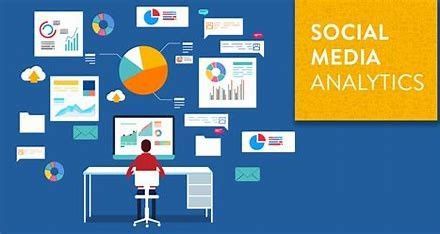
The Benefits of Real-Time Social Media Analytics for Crisis Management

In the modern era of technology, social media serves as a potent medium for communication and dissemination of information, reshaping the dynamics of human connections and interactions. Despite its myriad advantages, social media also presents several challenges. Among these challenges, one of the most prominent is the real-time management of crises. The swift dissemination of information across social media platforms can either facilitate or impede crisis response initiatives.
Real-Time Social Media Analytics: Unveiling the Power of Data
In the world of crisis management, real-time social media analytics is the key to staying ahead of the curve. It provides organizations with invaluable insights into public sentiment, emerging trends, and potential risks during a crisis. By monitoring social media platforms in real-time, organizations can quickly identify and analyze relevant conversations, allowing them to assess the situation accurately and make informed decisions. Whether it’s a natural disaster, a product recall, or a PR crisis, real-time social media analytics can be a game-changer in managing crises effectively.
The Power of Real-Time Social Media Analytics in Crisis Management
When a crisis strikes, time is of the essence. Every minute counts, and delays in response can have severe consequences. Real-time social media analytics provide organizations with the ability to track and analyze conversations as they happen, enabling them to detect early warning signs and respond promptly. By monitoring social media platforms in real-time, organizations can identify potential threats and risks, understand public sentiment, and gauge the effectiveness of their crisis management strategies. This allows them to make data-driven decisions, adapt their response strategies, and effectively manage the crisis at hand.
Harnessing the Power of Data: How Real-Time Social Media Analytics Work
Real-time social media analytics leverage advanced technologies such as natural language processing (NLP), machine learning, and artificial intelligence (AI) to collect, analyze, and interpret data from social media platforms. By processing vast amounts of data in real-time, these analytics tools can identify key themes, sentiment, and trends related to a crisis. They can also track the reach and impact of social media posts, identify influential voices, and detect misinformation or rumors that might exacerbate the crisis. By providing real-time insights, organizations can make informed decisions, adapt their crisis management strategies, and effectively communicate with stakeholders.
The Benefits of Real-Time Social Media Analytics for Crisis Management
- Early Detection and Rapid Response: Real-time social media analytics enable organizations to identify emerging crises and potential threats at an early stage. By monitoring social media conversations, organizations can detect signals and patterns that indicate an evolving crisis. This allows them to respond promptly and take proactive measures to mitigate the impact of the crisis.
- Accurate Situational Assessment: During a crisis, staying informed and having accurate situational awareness is crucial. Real-time social media analytics provide organizations with real-time insights into public sentiment, emerging trends, and potential risks. With this information at hand, organizations can assess the situation accurately and make informed decisions.
- Data-Driven Decision Making: Real-time social media analytics empower organizations to make data-driven decisions during a crisis. By analyzing the data, organizations can gain insights into public sentiment, identify potential risks, and understand the effectiveness of their crisis management strategies. This allows them to adapt their response strategies and ensure that their actions are aligned with the needs and expectations of the stakeholders.
- Effective Communication and Stakeholder Engagement: Communication plays a vital role in crisis management. Real-time social media analytics help organizations identify key stakeholders, understand their concerns, and tailor their communication strategies accordingly. By engaging with stakeholders in a timely and relevant manner, organizations can build trust, manage expectations, and maintain their reputation during a crisis.
- Monitoring and Mitigating Reputational Risks: Crises can have a significant impact on an organization’s reputation. Real-time social media analytics enable organizations to monitor and evaluate the impact of social media conversations on their brand reputation. By tracking public sentiment and addressing negative feedback promptly, organizations can mitigate reputational risks and protect their brand image.